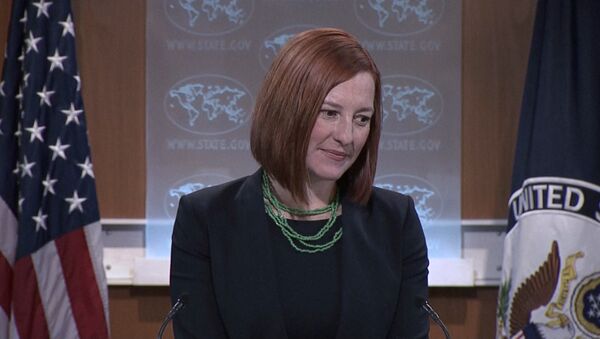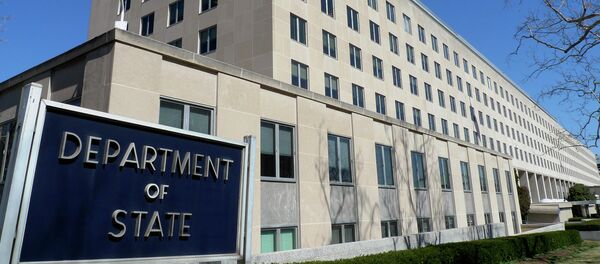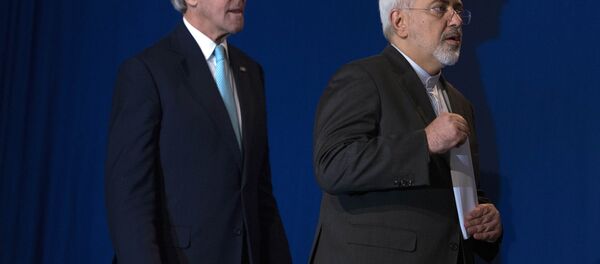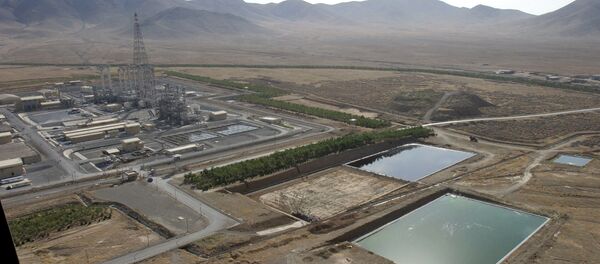On Wednesday, State Department spokesman John Kirby admitted that an unidentified official made "a deliberate request" to delete the footage.
"This wasn't a technical glitch, this was a deliberate step to excise the video," Kirby added.
In the deleted segment, the reporter pointedly asked whether it was State Department policy "to lie" in order to "preserv[e] the secrecy of secret negotiations." The journalist posed the question after receiving a tip that secret direct talks were underway between Washington and Tehran over Iran's nuclear program. Psaki's predecessor, Victoria Nuland, earlier denied that any one-on-one negotiations outside the international P5+1 group were taking place.
The Fox reporter's question, and Psaki's response, that "there are times where diplomacy needs privacy in order to progress," was curiously edited out of the 2013 clip on the State Department's website. Officials later blamed the disappearance on a 'glitch', adding that the clip had been restored in full.
For his part, Iranian journalist and commentator Hassan Beheshtipour, a frequent contributor to Iran's Press TV, told Sputnik Persian that there are several important details about this incident which the American press hasn't focused on.
Most importantly, he suggested, "the facts confirming the existence of confidential negotiations between the US and Iran, where Washington secretly promised to accept Tehran's terms on uranium enrichment, had been removed and hidden because the US wants the history of the deal to be written according to their vision and their positions, and not how it was in reality."
Another important element to the story, Beheshtipour noted, was the fact that negotiations began in 2011, under then Iranian Foreign Minister Ali Akbar Salehi, long before the apogee of US sanctions pressure against Tehran.
In this sense, the journalist noted, "if the American side is trying to hide this fact today, it seems that it is thus trying to say that the Iranians only decided to sit down and negotiate when sanctions had reached their peak. But in fact this is absolutely not the case."
In any case, according to Beheshtipour, the embarrassing lapse, and the State Department's apparent failure to consider that the video would be made available elsewhere, including YouTube, has only served to damage US credibility.





